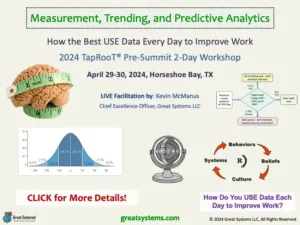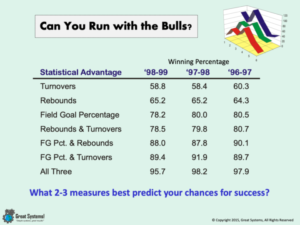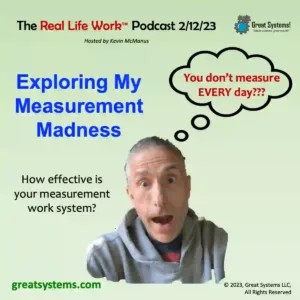Use of the occasional business sports analogy helps people better understand the concepts behind good and bad business practices.
The Business Sports Analogy Dilemma
As a huge sports fan, it is difficult to resist the use of the occasional business sports analogy to explain a business concept. Unfortunately, I have been coached over the years to avoid the use of such analogies in the business world.
This is based on the premise that such analogies are not suitable for a diverse audience. In other words, those people who don’t pay attention to sports do not want to hear sports analogies. They say they cannot relate to such comparisons.
They struggle to see the importance. I don’t buy it.
I understand these differences in perspective and opinion. At the same time, I feel that we miss out on a lot of possible learnings when we avoid the occasional business sports analogy all together.
A well-used business sports analogy can help us explore both good and bad business practices. In many cases, we can reach our audience more effectively. Additionally, we increase concept retention if we can effectively use business sports analogies to explain key business concepts.
When Does a Business Sports Analogy Makes Sense?
I am personally as obsessed with sports as I am with continuous improvement in the business world. While I really cannot explain the genesis of this strong preference, it is easy to say why I think the sports and business worlds we work in are more similar than different.
Most importantly, sports is a business where people use processes to get results. I doubt that any of us would argue that point. However, let’s also consider the fact that the companies we work in are one and the same.
One of the most important things I like about sports is the consistent use of data. In comparison to most businesses, sports teams do a much better job with performance measurement. For example, they employ the use of balanced scorecards for both individual and team performance measurement.
We often hear of ‘five tool players’ in baseball. Coaches consistently state how success in the NFL requires top performances from the offense, defense, and special teams, not just one or two of the three groups.
Plus, they strive to consistently improve their work processes and measurements practices. This includes the measures they use over time to help them make better business decisions.
Sports people really use data to understand the systems that they work with each day. They measure performance in countless ways.
For example, measures are sued to both recruit prospective employees and assess personal and team performance from game to game. You can look at a box score the next day and really see what happened.
Imagine the benefits we could obtain in our own companies if we could watch our own company’s version of ESPN each day.
EXPLORE MORE: How to Measure and Improve Your Measurement Work System
Process Capability and the Business Sports Analogy
The business sports analogy can help us better understand process capability. You would not expect to see a soccer team score fifteen points very often. Similarly, you would not expect a pitcher to pitch a no-hitter every time out. We spend a lot of time studying sports data and building theories about why certain sports systems behave as they do. We don’t expect to see performances that extend well beyond the norm of what is possible. In business however, we often behave in an illogical manner when we regularly expect levels of performance to be reached that appear to be beyond what is possible to those on the front lines. How capable are your work processes? How do you know?
One of my own best examples of using a business sports analogy comes from when I worked for a trucking company. We had 23 freight terminals in our system. While each terminal had its own unique system features, the ownership tended to expect the same level of performance from each terminal. After using a baseball analogy, where I compared the average run output for different stadium designs, I was able to show the owners that system design features do affect output and performance, even in a trucking company. Continuous improvement over time should be expected. We must also recognize that improvement rates and levels may differ across locations, work groups, and product lines.
I also like to watch we monitor, measure, and utilize talent in the sports world. In business, we rarely assess talent in a meaningful way, even during the all important hiring process. Instead of making someone perform a trial set of tasks that we will be expecting them to do each day, we accept their resume and interview versions of what they can do for us. Sports teams consistently track the physical and mental potential of their employees. They more importantly use this information to make daily lineup decisions.
BUY ON AMAZON.COM: Vital Signs, Scorecards, and Goals – the Power of Meaningful Measurement
The Downside of the Business Sports Analogy
The business sports analogy does not have to be seen only in a positive light. In the case of multiple college and professional coaches, we get the chance to see what happens to a sports team when its leader falters from an ethical perspective. Over the years, we have unfortunately seen several examples of how labor negotiations can be botched and otherwise improperly managed. We also get the chance to witness on a consistent basis the actions that team ownership takes (or fails to take) to improve the value that a fan (the customer) gets when they attend a sporting event.
The greatest negative found in sports maybe the extensive use of ‘one winner’ recognition systems. Competition is great for fan base development and sports revenue generation, but it can easily erode teamwork in a company. Systems that allow one person to win while the rest lose are not representative of the types of approaches we should adopt from sports. We can learn a lot about how to do not things in business by studying the world of sports, just as we can learn some best practices. The business sports analogy is not always fitting.
LEARN MORE: How to Measure and Improve Your Compensation Work System
Use Better Measures to Understand the Work and Human Systems You Manage
I believe that personal biases towards the business sports analogy will continue to shift towards the positive in the coming years. The most compelling question to ask is simple. Why do sports teams invest the effort, time, and money that they do to measure personal and team performance? Is it the amount of revenue that is at stake? Is it simply the continued support of a measurement culture that was started at least 100 years ago? I think the amount of revenue at stake does matter, and years of culture are a challenge to shift.
The answer, however, I think is much more simple. Sports teams measure as they do because they get results from their efforts. They make better decisions when they use better measures to understand the work and human systems they manage. Do you realize similar benefits from your measurement efforts?
Keep improving!
Kevin McManus, Chief Excellence Officer, Great Systems
WATCH over 50 kaizen and workplace health improvement videos on my Great Systems YouTube channel.
CHECK OUT my ‘Teach Your Teams’ workbooks on Amazon.com
LIKE Great Systems on Facebook
© Copyright 2024, Great Systems LLC, All Rights Reserved




